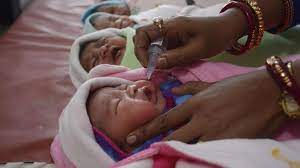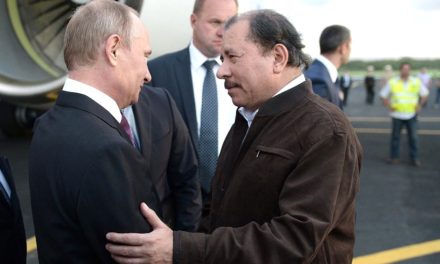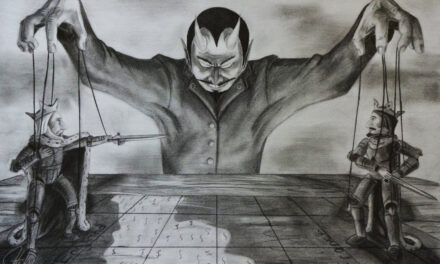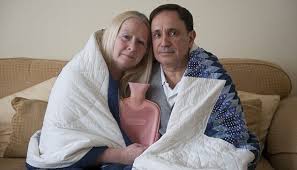The ongoing conflict in Gaza has once again brought to light the tragic juxtaposition of humanitarian efforts and relentless violence. Recently, Israel and Hamas agreed to limited daily pauses in fighting to allow for a polio vaccination campaign in Gaza. While this might appear as a beacon of hope in a war-torn region, it also underscores a glaring hypocrisy: the same international community that negotiates for the health of Gaza’s children is complicit in a conflict that has taken tens of thousands of Palestinian lives. Furthermore, the involvement of the World Health Organization (WHO) in this campaign raises questions about the credibility of the organization, especially in light of its controversial handling of the COVID-19 pandemic. As more evidence emerges that the COVID-19 vaccines may have caused more harm than good, why should the WHO be trusted now?
The Hypocrisy of Humanitarian Pauses
Humanitarian Efforts Amid War
The announcement of humanitarian pauses for the polio vaccination campaign in Gaza highlights the international community’s selective concern for the health and well-being of Palestinian children. These pauses, limited to three separate zones for three days each, are designed to allow over 640,000 children to receive the polio vaccine. The agreement, brokered by the WHO, Israel, and Hamas, seems like a step in the right direction for the welfare of Gaza’s children.
However, this seemingly positive initiative is overshadowed by the ongoing violence that has killed more than 40,000 Palestinians since October 7, 2023. The very children who are being vaccinated are the same children who are at risk of being caught in the crossfire, displaced from their homes, or killed by the conflict. The situation begs the question: what good is a vaccination campaign when the broader context is one of death and destruction?
A False Sense of Humanity
The decision to pause hostilities for a vaccination campaign is, in many ways, a superficial gesture that masks the deeper, unresolved issues of the Israeli-Palestinian conflict. It allows the parties involved—Israel, Hamas, and the international community—to present themselves as concerned about the welfare of children, while simultaneously perpetuating a cycle of violence that endangers those very lives. This approach creates a false sense of humanity, where the focus is on short-term humanitarian efforts rather than addressing the root causes of the conflict.
The WHO’s Role: Past and Present
The WHO and the COVID-19 Pandemic
The WHO’s involvement in the Gaza vaccination campaign comes at a time when the organization’s credibility is under intense scrutiny. During the COVID-19 pandemic, the WHO played a central role in promoting the global vaccination campaign, urging governments and individuals to accept COVID-19 vaccines as a means to control the virus. The organization’s influence was immense, shaping public health policies, guiding vaccine distribution, and encouraging widespread compliance with vaccination protocols.
However, as the pandemic has receded, growing evidence suggests that the COVID-19 vaccines may have caused more harm than good in some cases. Reports of vaccine-related side effects, ranging from mild reactions to severe health complications, have emerged, leading to questions about the safety and efficacy of the vaccines. Some studies have even suggested that certain populations may have experienced more harm from the vaccines than from the virus itself, particularly in the case of young, healthy individuals who were at low risk of severe illness from COVID-19.
Eroding Trust in the WHO
The growing skepticism toward the COVID-19 vaccines has eroded public trust in the WHO. Critics argue that the organization, in its eagerness to combat the pandemic, may have overlooked or downplayed potential risks associated with the vaccines. Moreover, the WHO’s close ties with pharmaceutical companies and its role in promoting vaccine mandates have raised concerns about conflicts of interest and the prioritization of corporate profits over public health.
This erosion of trust is particularly troubling given the WHO’s current involvement in the Gaza vaccination campaign. If the WHO’s credibility is in question, how can the international community, and the people of Gaza, trust that the organization is acting in their best interests? The polio vaccination campaign, while seemingly benign, is being carried out by an organization whose recent track record has been marred by controversy and criticism.
The Impact of Vaccine Mandates: A Global Perspective
Mandates and Public Health
The implementation of COVID-19 vaccine mandates around the world was a direct result of WHO recommendations. Governments were encouraged to enforce vaccination as a prerequisite for participation in various aspects of public life, from employment to education to travel. These mandates were justified on the grounds that widespread vaccination was necessary to achieve herd immunity and protect public health.
However, the unintended consequences of these mandates have become increasingly apparent. In some cases, individuals who were coerced into taking the vaccine experienced serious health issues, leading to public outcry and legal challenges. The mandates also exacerbated social divisions, with vaccine skepticism leading to polarization and distrust in both government and public health institutions.
The Legacy of COVID-19 Vaccination Campaigns
The legacy of the COVID-19 vaccination campaigns is complex. On one hand, the vaccines may have saved lives, particularly among vulnerable populations such as the elderly and those with pre-existing conditions. On the other hand, the long-term consequences of mass vaccination, particularly in younger, healthier populations, remain uncertain. The emergence of vaccine-related side effects has led to calls for greater transparency, accountability, and caution in future public health campaigns.
As the WHO continues to play a central role in global health initiatives, including the Gaza vaccination campaign, it must grapple with the legacy of the COVID-19 pandemic. The organization’s ability to effectively address public health crises in the future will depend on its willingness to learn from past mistakes and rebuild trust with the global community.
The Ethical Dilemma of Humanitarian Interventions
Short-Term Relief vs. Long-Term Solutions
The humanitarian pauses in Gaza, while providing short-term relief, do little to address the long-term challenges facing the region. The focus on vaccinating children against polio, while commendable, cannot obscure the fact that these same children are living in a war zone, where their lives are constantly at risk from violence, displacement, and deprivation





